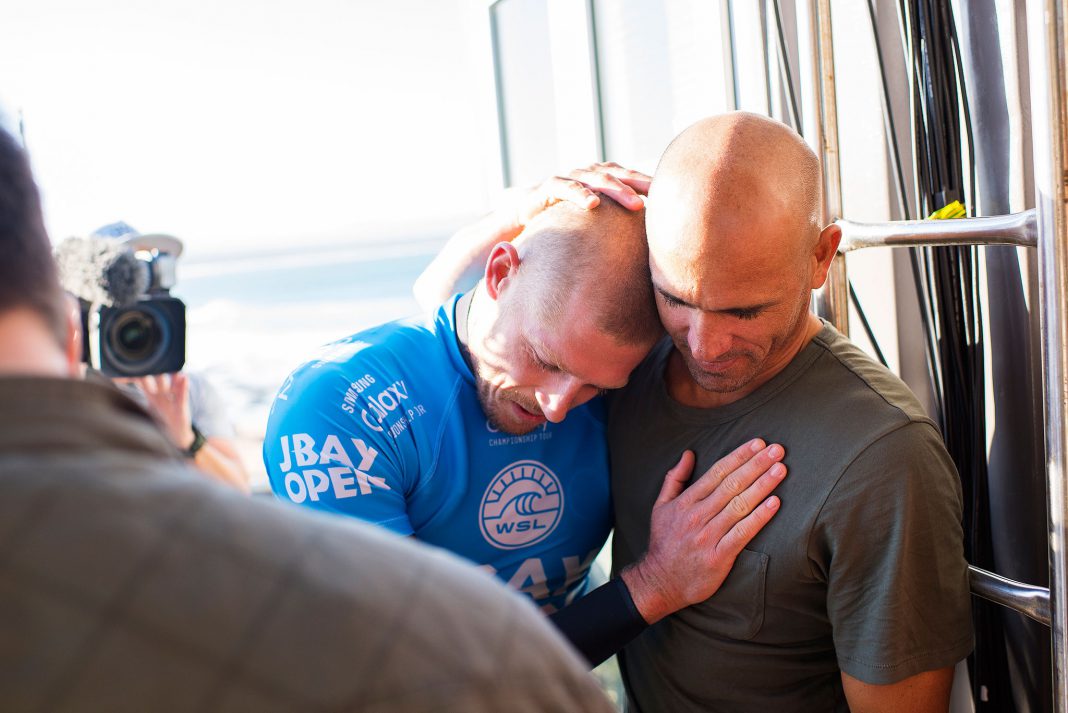Words Mimi LaMontagne
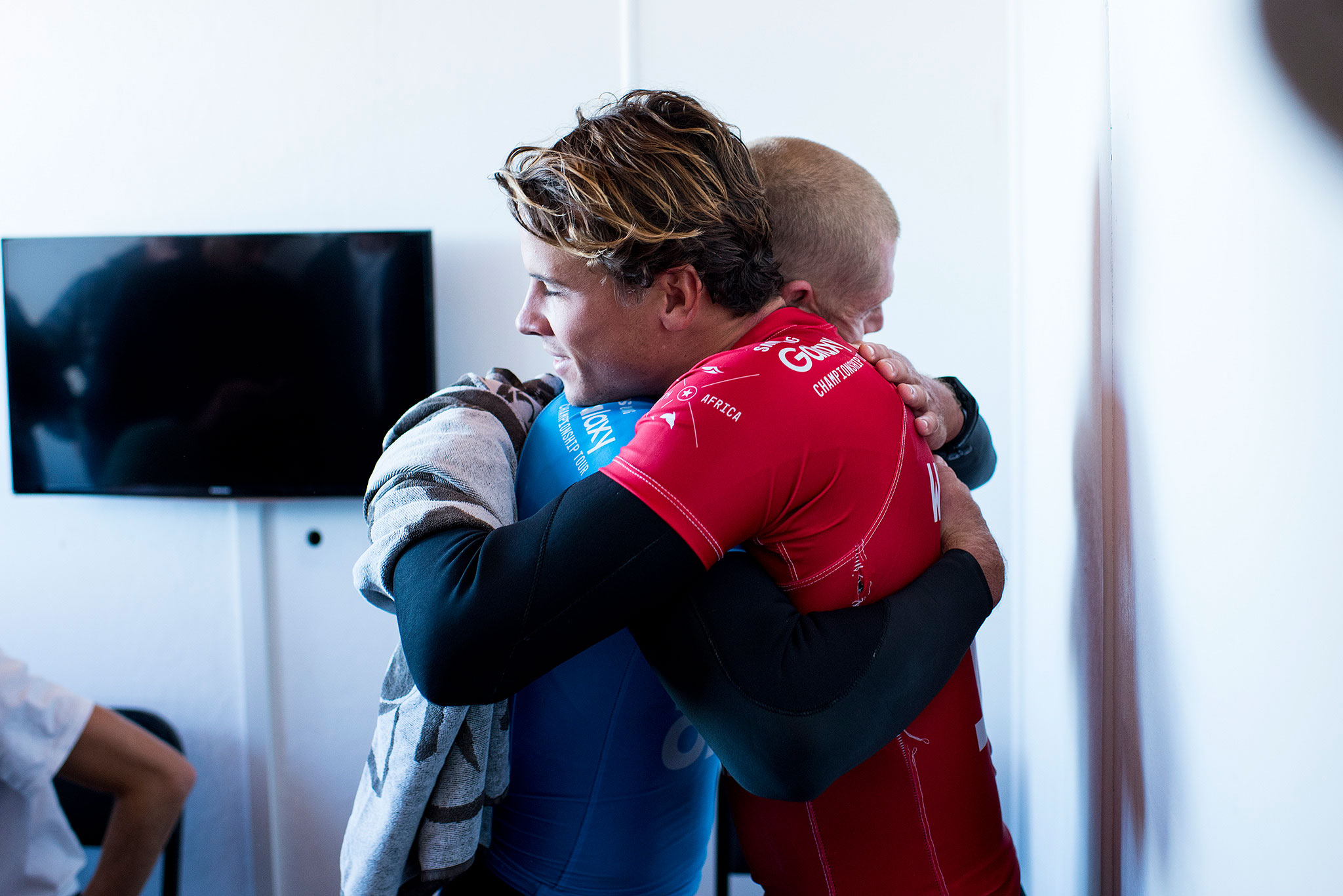 Photo: WSL/Kirsten Scholtz
Photo: WSL/Kirsten Scholtz
What Mick Fanning and Julian Wilson went through during the final of the JBay Open is an event that would send any human being into shock, professional surfer or otherwise. And with shock comes a whole lot of other stuff – stuff that mental health professionals talk about and you know exists, but you can’t really understand until you’ve been through it.
That’s why we got on the phone with Richard Bennett*, a Performance Psychologist who worked with the WSL from 2000-2003, to tell us what the aftermath of an event like this can be…
What are the normal steps that somebody goes through, after an event like this, when they come out unharmed?
It’s incredible how strong the experience is for people on the other side of the world, even, which kind of gives an indication of the depth of experience and feeling that Mick, and Julian, would have.
Mick seems pretty composed when he gets in the boat. What would you say his reaction means, in terms of recovery from the event?
Well, it might help to paint a bit of a picture of what he’s just been through psychologically, first. Because to be honest, I was amazed that he could even speak.
It’s important to note that it was a highly adrenalised day for Mick already. He surfed multiple heats and so his sympathetic nervous system would have been in and out of “fight or flight” mode all day. Then he’s sitting there, completely focused on what his next move is going to be as an athlete, and then the moment he’s realised what’s going on, that he’s basically facing his mortality, his fight or flight response would immediately supercharge, sending a massive adrenaline surge through his entire system, and in his mind there’s nothing else on earth going on other than what is going on right then and there. He’s literally fighting for his life. Then the water patrol arrive and create physical safety, and once everyone realises no harm to Mick or Julian, the activation system begins to drop away from the redline, and then often a flood of mixed emotions begin to pour in.
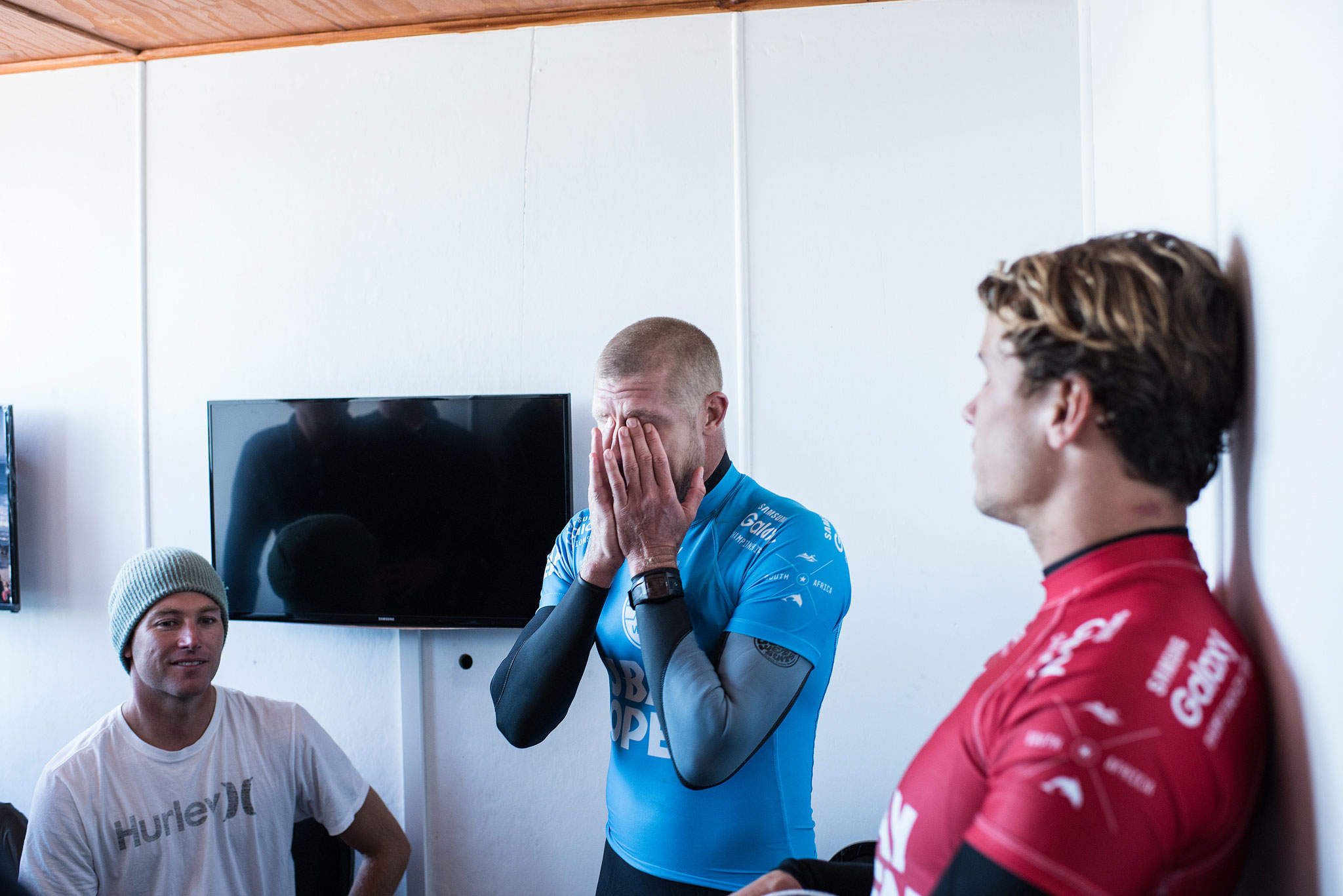 Photo: WSL/Kirsten Scholtz
Photo: WSL/Kirsten Scholtz
In this situation, what can help those shock symptoms?
Applying Psychological First Aid** (a global term and program used to describe the standard for immediate response to human trauma), which begins with promoting safety and creating calm. I mean, I wouldn’t be surprised if Mick was still shaking at some level, so creating calm and promoting connectedness to loved ones is very important. The response of the water patrol, the immediacy of them being right next to Mick and Julian, would have had a really beneficial effect too, obviously to remove them from physical danger, though also psychologically as they’d have felt totally out of control at the mercy of what those two sharks chose to do – but were able to regain that sense of control quite quickly, which really helps to settle the system.
Like any human who has just faced their mortality, there will be layers for Mick, over the next few days and weeks, of moving through the shock and regaining a sense of control and inner calm. Like any species too, the moment they’re back with their own species, they calm down straight away, and then you go to the next levels of emotion when you see your family and close friends. So it’s very important that the people around Mick, Julian and anyone feeling affected by this event, are simply present and available, without being investigative, as re-telling the story is essentially reliving the experience mentally and emotionally, which can delay psychological recovery and increase the risk of developing mental health issues.
Do you think it was a good decision to call off the final?
From a psychological perspective I believe they made a good decision to call off the final, as being re-exposed to the same risk or even re-entering the same space where the experience occurred can be very mentally and emotionally damaging, especially when the person is still in a state of shock. People who experience repeated or prolonged trauma have a higher risk of developing post traumatic stress disorder (PTSD) and other mental health issues. So it’s very important that Mick, Julian and any other surfer affected by this event allow themselves time to return to the (in this case) ocean if and when they feel ready, calm and confident.
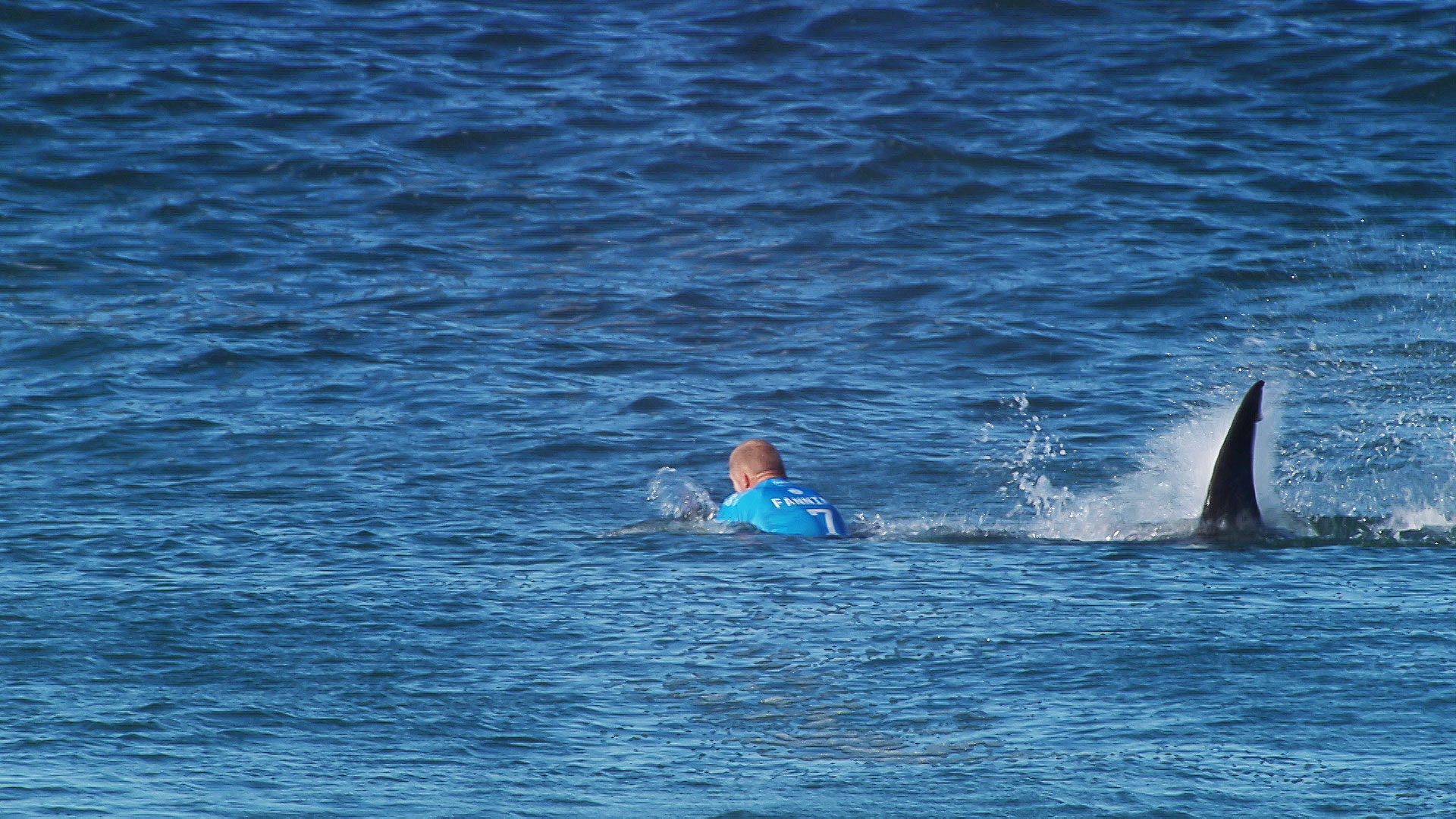 Photo: WSL
Photo: WSL
In Mick’s situation, as a professional surfer, what’s that going to mean for him, come, say, Tahiti?
Every surfer who’s ever had an encounter with a shark thinks, oh wow, that was heavy, and I’ve gotta process this in my mind and come to that place where I feel ready to get back in the water. For some people that’s the next day, for others, they might never return.
I can’t speak specifically for what Mick will do, though I do know he is a very self aware and intelligent guy and so will be thinking about his wellbeing. And something that’s really wonderful about the surfing community is that we understand the potential risks and rewards of the ocean, so I would not imagine there’s any kind of external pressure or demand for Mick to get back in the water.
What about the fact that it has been broadcast around the world?
Everyone who’s seen what happened has an emotional response and connection with Mick, great or small. And there’s are a lot of kids who look up to him as their hero. Seeing it live, on telly, makes it very real. We live our lives in a happy and stable place, usually, where we go surfing and enjoy ourselves, then when one of the worlds best surfers, in a final of a WSL event, has a shark encounter, it brings it back to being a very real and present danger for everyone, and so some people can really be affected by watching it. Trauma can be experienced vicariously too, so if signs and symptoms such as poor sleep, low or anxious mood, distress or difficulty restoring harmony with usual routines persist for anyone affected by this event, I recommend they seek psychological assistance.
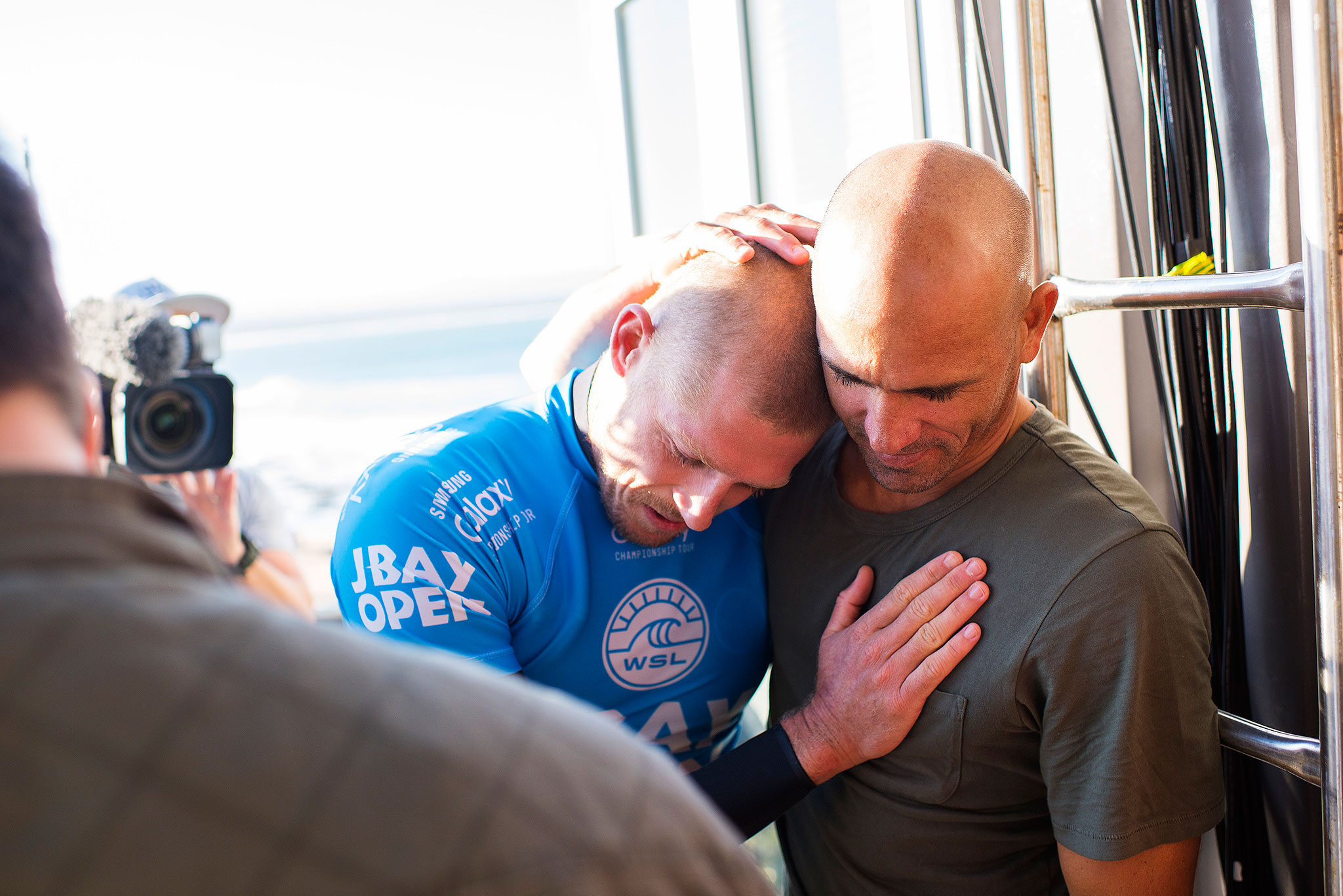 Photo: WSL/Kirsten Scholtz
Photo: WSL/Kirsten Scholtz
If you have a traumatic experience it can change your way of thinking. Can you explain this in psychological terms?
Significant life events can be a catalyst for change for a human being. We can change physically, mentally, emotionally and spiritually based on the experiences we have in life. And interestingly, Mick has done that before. When we reflect back to the potentially career-ending injury that he had when he tore his hamstring off the bone… He always had world title potential, from the moment he won Bells as a rookie, but it wasn’t until he had that bad experience and realised one of his greatest loves could be taken away, that he changed psychologically, he realised his value and then did everything he possibly could to get to the top level, and then went beyond where he was before injury to achieve three World Titles. So it’s possible that a really wonderful transformation can come from an experience like this. Seeing how the surfing community has bonded so strongly is already an example and often when an event like this happens, what’s truly important is absolutely illuminated, like the connection among humans at the level of the heart.
Thanks for your time, Richard.
* Richard Bennett is a Performance Psychologist. Rich worked globally on the WSL (formerly ASP World Tour) from 2000-2003, authored “The Surfer’s Mind” and has developed and implemented Critical Incident Trauma Response protocols in his role as lead Psychologist for several Australian Summer and Winter Olympic and Paralympic Teams. Rich consults locally and globally from his base in Jan Juc, Victoria. For more about Rich, his book and services please go to: www.ompsychology.com
** For more information on Psychological First Aid go to: http://www.redcross.org.au/files/Psychological_First_Aid_An_Australian_Guide.pdf
This website also includes a list of useful organisations, references and resources for those in need of psychological information or facing PTSD.



